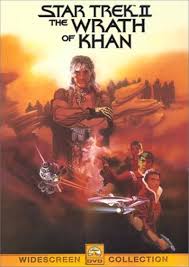
Introduction
Khan Noonien Singh, a genetically engineered superhuman, has become one of the most recognisable characters in the Star Trek franchise. First appearing in the original series episode ‘Space Seed’ in 1967, he has transcended his initial portrayal to become a cultural icon in science fiction. His character raises important questions about ethics in genetic engineering, power, and revenge, making Khan a relevant figure in today’s discussions surrounding biotechnology and its implications.
Khan’s Origins in Star Trek
Khan was introduced as a product of the Eugenics Wars, a fictional conflict in the 1990s where genetically enhanced beings sought dominance over unmodified humans. Portrayed originally by actor Ricardo Montalbán, he was both a charismatic leader and a tyrant — a complex character that challenged Captain Kirk. His return in the 1982 film ‘Star Trek II: The Wrath of Khan’, directed by Nicholas Meyer, solidified his status as a fan favourite. In this film, Khan seeks to avenge Kirk for the events of ‘Space Seed’, which ultimately leads to a gripping storyline filled with moral dilemmas and sacrifices.
Khan’s Enduring Legacy
The impact of Khan extends beyond individual episodes and movies. His character has sparked numerous discussions around villainy and heroism in literature and film. Khan embodies the tragic consequences of unchecked ambition and the ethical quandaries of manipulating human capabilities. In contemporary culture, Star Trek’s exploration of extrahumanism and genetic engineering resonates with ongoing debates surrounding CRISPR technology and cloning. The moral implications of Khan’s existence continue to be reflected in modern science fiction narratives, where the line between human enhancement and ethical responsibility is explored.
Recent Developments and Cultural References
In recent years, Khan’s character has seen a resurgence with the 2013 film ‘Star Trek Into Darkness’, in which he was portrayed by Benedict Cumberbatch. Although the film received mixed reviews, it reignited interest in Khan’s character. The controversy over his portrayal and the casting of a white actor for a character originally based on Montalbán, who was of Mexican descent, sparked discussions about representation in Hollywood. This debate continues to be relevant in contemporary film and television, reflecting broader movements advocating for diversity and authenticity in storytelling.
Conclusion
Khan Noonien Singh’s impact on the Star Trek universe, and on science fiction as a whole, is undeniable. His character serves as a thought-provoking exploration of ambition, morality, and the consequences of human enhancement. As discussions around genetics and biotechnology become increasingly pertinent in our society, the lessons we derive from Khan’s story remain relevant. With continued interest in Star Trek, it is likely that Khan’s legacy will endure, prompting new generations to consider the ethical dilemmas that arise from our own scientific advancements.
You may also like

The Importance of Storytelling in Modern Society

The Vital Role of Live Shows in Modern Entertainment
